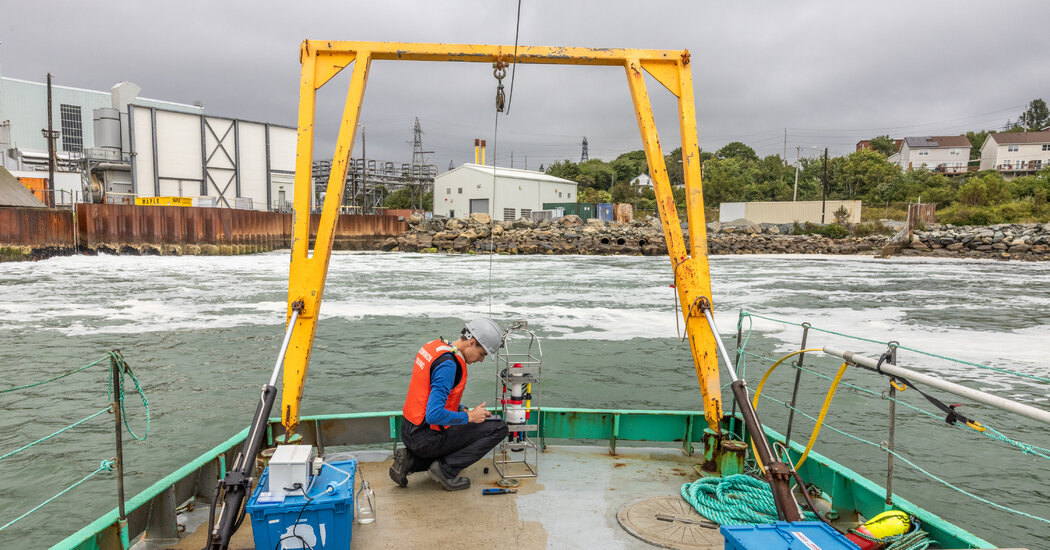In a quiet patch of forest in Nova Scotia, a company is building a machine designed to help slow global warming by transforming Earth’s rivers and oceans into giant sponges that absorb carbon dioxide from the air.
When switched on later this year, the machine will grind up limestone inside a tall green silo and release the powder into the nearby West River Pictou, creating a chalky plume that should dissolve within minutes.
The effect could be potent, scientists say. Rivers contain carbon dioxide that is constantly escaping into the air, where it traps heat and warms the planet. But adding limestone converts some of that carbon dioxide into a stable molecule that instead stays underwater and washes into the sea, where it should remain trapped for thousands of years.
“The beauty of it is how simple the technology is,” said Eddie Halfyard, a freshwater ecologist and co-founder of CarbonRun, the start-up building the $400,000 limestone machine, with plans for many more. “We let the water do most of the work.”
With the dangers of climate change growing and greenhouse gas emissions soaring, scientists and entrepreneurs are increasingly exploring ways to deliberately intervene in climate systems to cool the Earth. Overwhelmingly, scientists say nations must sharply cut the pollution from burning fossil fuels that is driving up global temperatures. But many also believe that some of the excess carbon in the atmosphere must also be pulled out in order to preserve a livable planet.
“The potential for ocean-based carbon removal is huge, and it’s been really underexplored,” said Nan Ransohoff, who heads Frontier, a $1 billion fund backed by tech giants like Stripe and Alphabet that is investing heavily in strategies to take greenhouse gases out of the atmosphere.
